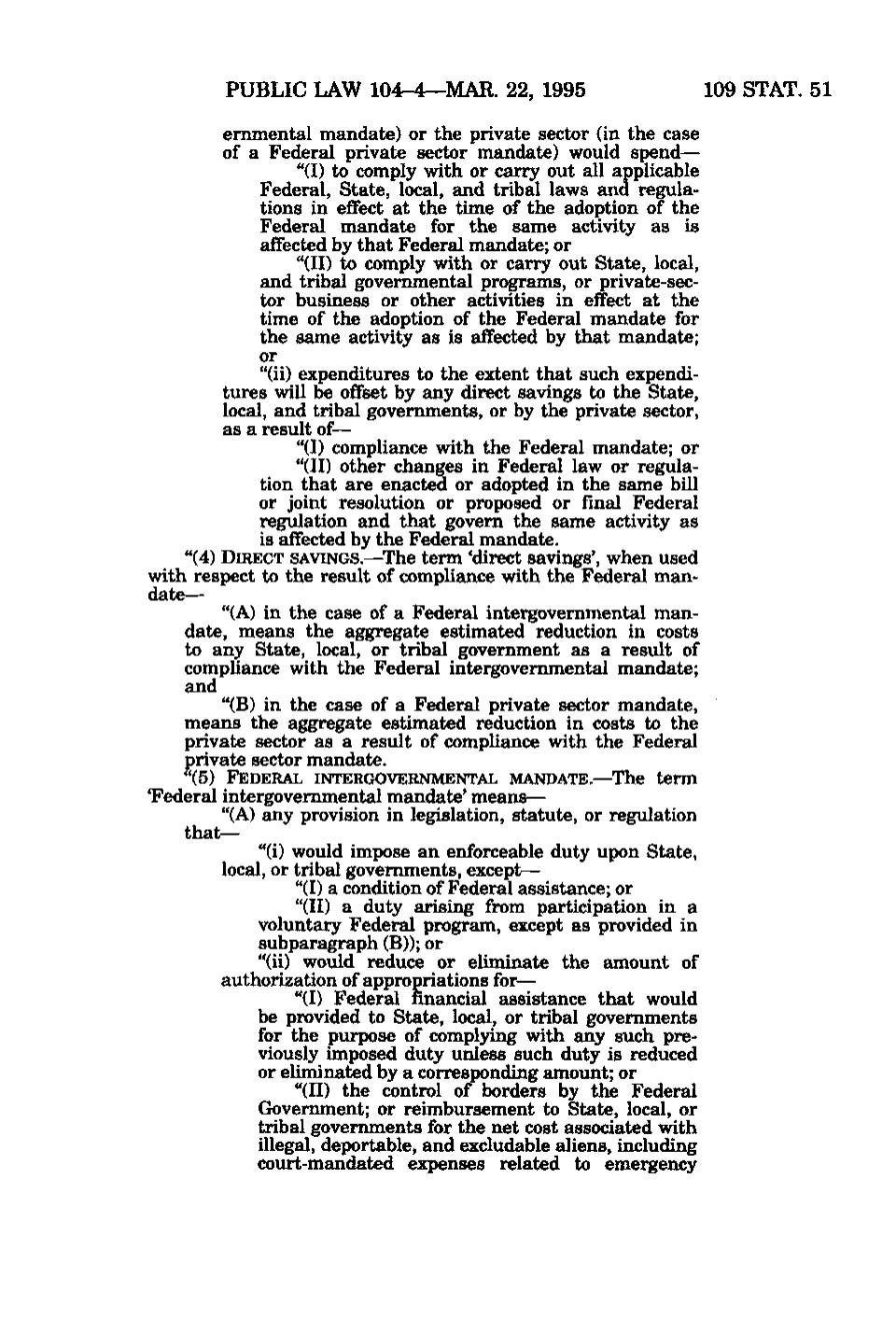, s.^#*^ PUBLIC LAW 104-4—MAR. 22, 1995 109 STAT. 51 ernmental mandate) or the private sector (in the case of a Federal private sector mandate) would spend— "(I) to comply with or carry out all applicable Federal, State, local, and tribal laws and regulations in effect at the time of the adoption of the Federal mandate for the same activity as is affected by that Federal mandate; or "(11) to comply with or carry out State, local, and tribal governmental programs, or private-sec - tor business or other activities in effect at the time of the adoption of the Federal mandate for the same activity as is affected by that mandate; or "(ii) expenditures to the extent that such expenditures will be offset by any direct savings to the State, local, and tribal governments, or by the private sector, as a result of— "(I) compliance with the Federal mandate; or "(II) other changes in Federal law or regulation that are enacted or adopted in the same bill or joint resolution or proposed or final Federal regulation and that govern the same activity as is affected by the Federal mandate. "(4) DIRECT SAVINGS,—The term 'direct savings', when used with respect to the result of compliance with the Federal mandate— "(A) in the case of a Federal intergovernmental mandate, means the aggregate estimated reduction in costs to any State, local, or tribal government as a result of compliance with the Federal intergovernmental mandate; and "(B) in the case of a Federal private sector mandate, means the aggregate estimated reduction in costs to the private sector as a result of compliance with the Federal private sector mandate. "(5) FEDERAL INTERGOVERNMENTAL MANDATE.— The term 'Federal intergovernmental mandate' means— "(A) any provision in legislation, statute, or regulation that— "(i) would impose an enforceable duty upon State, local, or tribal governments, except— "(I) a condition of Federal assistance; or "(II) a duty arising from participation in a voluntary Federal program, except as provided in subparagraph (B)); or "(ii) would reduce or eliminate the amount of authorization of appropriations for— "(I) Federal financial assistance that would be provided to State, local, or tribal governments for the purpose of complying with any such previously imposed duty unless such duty is reduced or eliminated by a corresponding amount; or "(II) the control of borders by the Federal Government; or reimbursement to State, local, or tribal governments for the net cost associated with illegal, deportable, and excludable aliens, including court-mandated expenses related to emergency
�
